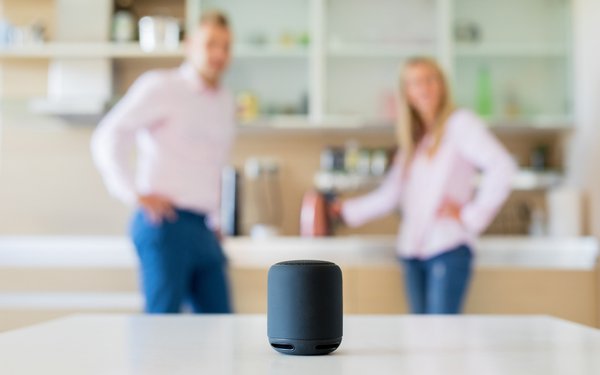Commentary
52% Of Consumers Worry About Passive Listening By Their Voice Assistants
- by Chuck Martin , Staff Writer, September 19, 2019

Consumers are getting more comfortable with voice assistants.
For certain types of information, voice assistants even can be trusted for product recommendations.
The majority (54%) of consumers trust voice assistants for low-involvement interactions that require a small number of questions to get a resolution, according to a new study.
For high-involvement interactions requiring many questions, most (55%) consumers would trust product recommendations by a salesperson, according to the study, comprising a survey of 12,000 consumers who use voice or chat assistants and 1,000 executives from various industries conducted by Capgemini.
However, consumers do have some fears about “passive listening,” or what their voice assistants are listening to.
The majority (52%) worry that their voice assistants are listening in the background to their private conversations.
Nearly half (49%) of voice assistant users in the U.S., U.K., France and Germany don’t trust voice assistants with the safety and security of their personal data.
Voice assistants still must learn a bit more.
Nearly half (47%) of consumers don’t believe a voice assistant is able to understand them or their reactions.
Consumers may not think the voice assistant understands, but they do expect she is listening.




The other 48% are either naive, in denial, or millennials